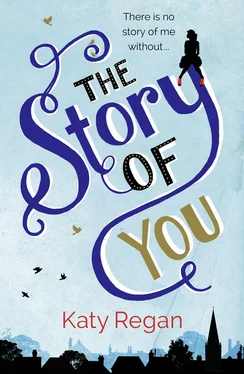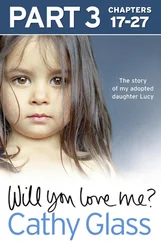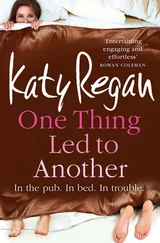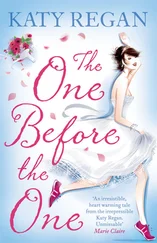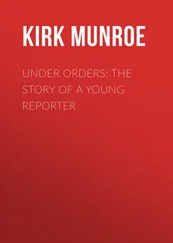He wasn’t laughing now, however, standing at the other end of the platform. He looked sheepish. He often looked sheepish these days, as if he was perpetually in the doghouse, which he probably was, for leaving Denise home alone for half an hour. I’d asked him specifically to come on his own, though. There were things I wanted to talk to him about that I didn’t want to discuss once we’d set foot in Deniseville (a twisted world on a par with some of my patients’ psychotic delusions) and we were going to Mildred’s Café, like old times, for some ‘Dad and Daughter’ time.
As I walked towards him, I could see that his thick, strawberry-blond hair was combed neatly in a way he never had it when Mum was alive; when he would regularly pick us up from Brownies wearing leathers and smelling of beer. Now he was wearing red chinos, pulled slightly too high, and a linen blazer. He looked like Boris Johnson.
‘All right, Dad,’ I said. Despite the fact I spent a lot of my time disappointed with him, I couldn’t stop the rush of love I felt when I saw my dad: the pure, blood kind, not based on any kind of spiritual connection.
‘Hiya, Bobby,’ he said, and we hugged briefly as he brushed his whiskery jowl next to my cheek. ‘Journey all right?’
‘Yeah, grand.’
We walked to the car in the evening sunshine. Dad doesn’t do standing on the platform and chatting. Mum would have told you half her news before you even got to the car. ‘I see you’ve brought the weather with you, like your sister,’ he said.
‘Oh, is Niamh here?’ I said, helping Dad lift my case into the boot. This would have been a big improvement to matters. Niamh has grown up with Denise. She understands her; the atmosphere improves.
‘No, but she was, she was here with Mary last night, but they’ve gone off on one of their expeditions for the weekend. You know how those two are attached at the bloody hip,’ Dad said, slamming the boot shut. He turned to me and studied my face for a second, as if about to say something profound, then changing his mind.
‘She’ll never find herself a boyfriend, the rate she’s carrying on.’
I pictured my sister and Mary, cuddling up under the stars in their clandestine tent, and I felt like crying. I wished she’d just tell Dad. It must be a huge burden for her to carry around.
Dad patted the pockets of that beige jacket for his car keys. I stepped back to give him the once-over.
‘We might have to have a word about this little ensemble, Dad,’ I said.
He raised his bushy blond eyebrows. ‘You’re a cheeky bugger, now get in that car,’ he said. When I looked in the rear-view mirror, I saw he was smiling.
The car was spotless.
‘Just had a valet, Dad?’
‘Every Monday. Without fail,’ he said, as we turned out of the station. ‘You know how Denise likes things spick and span.’
Oh, I knew.
Dad used to drive a pick-up truck. He used to bomb around the lanes like a nutter, one tanned arm hanging out of the window, thick gold chain around his neck, smoking a café crème, us three rattling around in the back – with no seat belts – amongst the timber and the old car parts, and the paraphernalia of whatever project Dad had up his sleeve at the time. I used to hate it when people asked when I was younger: What does your dad do? Because, genuinely, I didn’t know. I longed for him to have a normal job like my friends’ dads – on the railway, or with the Gas Board, but my dad had various jobs which changed all the time, so I could never keep track. He rented boats out to fishermen in Morecambe Bay, he mended people’s cars in our back garden, he did up houses (just not our own). He had a stint as an ice-cream van driver one summer, but used to swear all the time at kids who annoyed him. ‘Oh, piss off, Johnny, you little pillock.’ Mum used to tell him off, whilst finding it hilarious. I didn’t laugh at it then, but I do now. My dad’s funny. Just not always funny ha-ha.
It’s only a five-minute drive from the station to Mildred’s Café, near the shore, but you have to go the whole length of Kilterdale, and it’s like passing through a museum of my life; where at every turn there’s a relic from my past. We pass the swimming baths, where just the whiff of chlorine means I’m ten again, flat-chested and streamlined as a dolphin – through the muffle of the water, I can hear the cheers of my parents, (in particular, my mother and her foghorn voice, which Niamh inherited): ‘C’mon, Bobby!’ as I pound towards the finish line, another medal for Kilterdale Carps.
There’s the tiny cinema where, when Niamh was a baby, Mum would drop Leah and I off for the Saturday matinee, where they’d play old films. I loved those little snippets of freedom, the times alone with my big sister. The building is dilapidated today, but I can still smell the popcorn, the fusty velvet of the seats; I can still feel the ache in my throat as I tried not to cry at E.T. in front of Leah, and the feel of my hand in her bigger one on the walk through the fields back home. I miss Leah, I think. I miss us being children together.
We pass The Fry Up, Kilterdale’s chippy, where every Friday we’d go, all five of us, Mum letting us have cans of Dr Pepper and her always having a battered sausage: ‘It’s not as if I eat like this every day of the week, is it, girls?’ she’d say, grease dripping from her chin. In the summer, we’d sit on the little bench outside, Niamh being fed chips in her pushchair – the same bench on which, years later, I’d sit with Joe eating chips, and we’d talk about our lives that were yet to unfurl, no idea of what was to become of us, what lay ahead .I savour those summers, these memories. In my mind’s eye, they’re like sunbursts, sparkling on the sea. But then, like a current dragging me under, I always come back to the summer of ’97. Those memories feel like the cool, dark waters that run beneath the sunburst-covered sea, beneath everything I do.
We had to go down Friars Lanes. Due to the early warm weather, the hedgerows were high and bursting with green shoots; the fields, brown and cloggy with mud in the winter, were speckled with green. If you looked up, the trees were smudged with birds’ nests. They looked like masses of black thread.
I could feel Dad looking at me. ‘So,’ he said, eventually. ‘Why are you going to this funeral?’
He rarely spoke so directly and I started, found myself feeling defensive.
‘I don’t know, ’cause it’s his mum and it would be nice to support him. Because Marion was so good to me when my mum died?’
Dad nodded slowly and looked at me with this sad smile.
‘What?’ I said.
‘Nothing, it’s just …’ He paused for what seemed ages. ‘I thought you’d left all that behind, Robyn …’
‘I have.’
‘So …’
I tried to look at the fields, the copses beyond, not at the lanes unfolding in front of us.
‘So, what?’
‘So, I’m worried about you, that’s all. I’m just being concerned Dad.’
I was touched he was being concerned Dad.
‘It’s just the service and a few sandwiches back at the vicarage,’ I said. ‘And anyway, it was an excuse to see you .’ I reached over and touched him on his shoulder. He flinched, just ever so slightly, but he did, I felt it.
‘Okay, well that’s all right then.’
‘Dad, I’m thirty-two,’ I said. ‘I’ll be fine.’
He patted my knee and smiled. ‘And you’re still my little girl,’ he said.
Silence descended. It was thick and sticky and I didn’t know how to move it.
Dad spoke, eventually, changing the subject: ‘Look at them fields, eh, Robyn? Absolutely marvellous. I bet you miss all this in London, don’t you?’
Читать дальше
